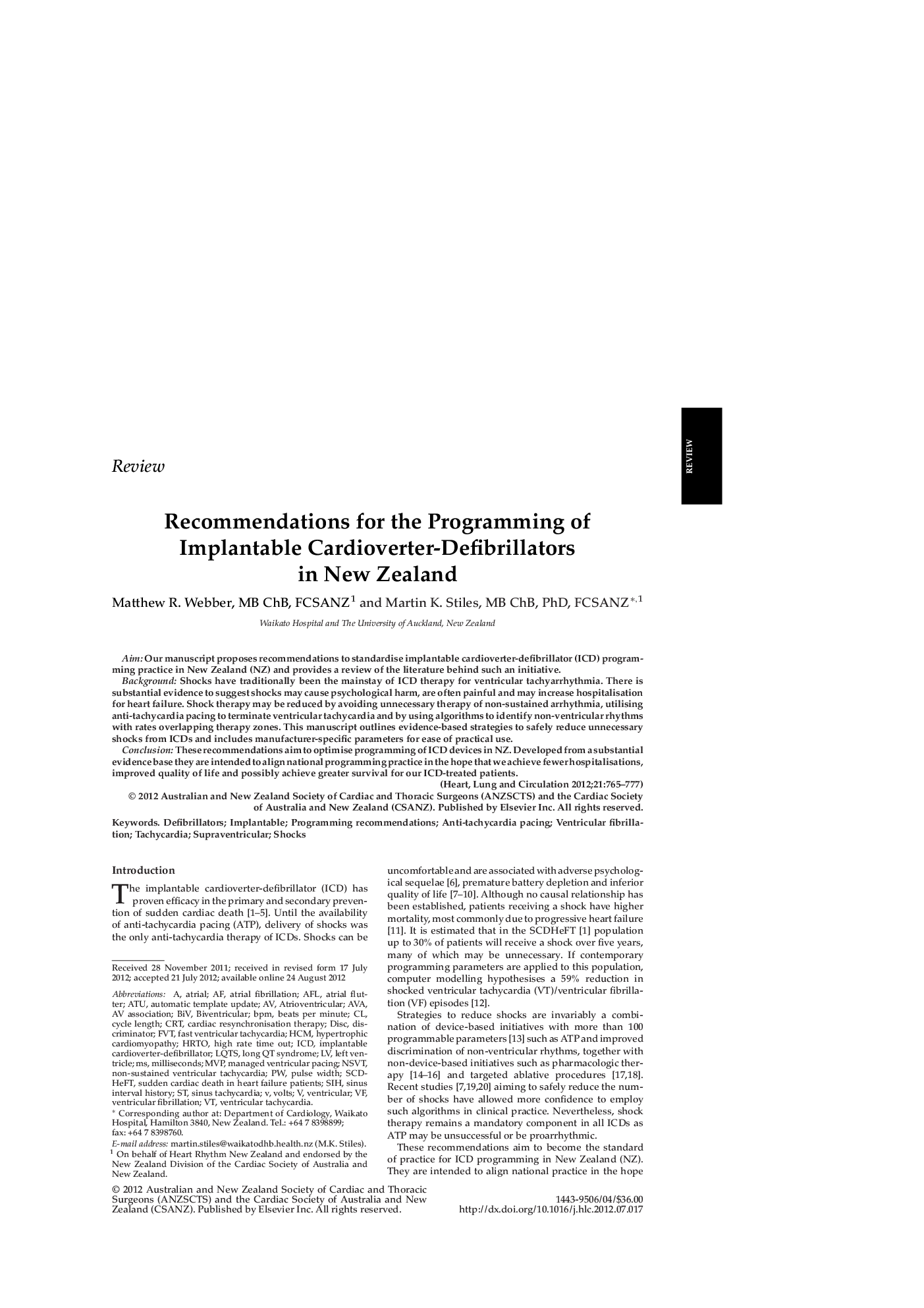| Article ID | Journal | Published Year | Pages | File Type |
|---|---|---|---|---|
| 2918144 | Heart, Lung and Circulation | 2012 | 13 Pages |
AimOur manuscript proposes recommendations to standardise implantable cardioverter-defibrillator (ICD) programming practice in New Zealand (NZ) and provides a review of the literature behind such an initiative.BackgroundShocks have traditionally been the mainstay of ICD therapy for ventricular tachyarrhythmia. There is substantial evidence to suggest shocks may cause psychological harm, are often painful and may increase hospitalisation for heart failure. Shock therapy may be reduced by avoiding unnecessary therapy of non-sustained arrhythmia, utilising anti-tachycardia pacing to terminate ventricular tachycardia and by using algorithms to identify non-ventricular rhythms with rates overlapping therapy zones. This manuscript outlines evidence-based strategies to safely reduce unnecessary shocks from ICDs and includes manufacturer-specific parameters for ease of practical use.ConclusionThese recommendations aim to optimise programming of ICD devices in NZ. Developed from a substantial evidence base they are intended to align national programming practice in the hope that we achieve fewer hospitalisations, improved quality of life and possibly achieve greater survival for our ICD-treated patients.
